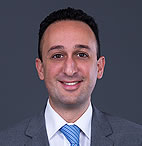Legal professional privilege protects all communications between a professional legal adviser and their client from being disclosed without the permission of the client. The privilege is solely for the benefit of the client and not the lawyer. The objective of this legal principle is to protect one's access to the justice system by ensuring individuals can disclose all relevant information to their legal advisers without the fear that this disclosure may result in negative repercussions or prejudice them in the future.
A lawyer ceases to be bound by the requirements of legal professional privilege if the lawyer can demonstrate that documentation or information:
- Was in the public domain at the time it was disclosed to the lawyer;
- Entered the public domain subsequent to the time it was disclosed to the lawyer through no fault of the lawyer; or
- Was in the lawyer's possession free of any obligation of confidence at the time it was disclosed to the lawyer, evidenced by contemporaneous records.
Notwithstanding the lawyer-client privilege, a lawyer may disclose certain documents / information to the extent such disclosure is required by a valid order of a court or other governmental body having jurisdiction, provided that the lawyer provides the client with reasonable prior written notice of such disclosure and makes a reasonable effort to obtain a protective order preventing or limiting the disclosure and/or requiring that the documents / information so disclosed be used only for the purposes required by law.
The concept of legal professional privilege in the State of Kuwait is limited only to the professional relationship between a lawyer and their client, through the lawyer’s obligation to keep confidential all information disclosed by their client (pursuant to Kuwait Law No. 42/1964 organizing the legal profession). Accordingly, the relationship between a lawyer and their client benefits from a limited scope of privilege because the parties are independent entities and the lawyer, of course, owes a duty of confidentiality to the client.
It appears that the same privilege protections do not apply to in-house legal counsel advising officers, directors or employees of the company as they are not independent to the client. However, to protect information or communications passing between in-house counsel and the employer, it may be possible for a confidentiality agreement to be put in place.
Legal professional privilege in the context of merger control
Legal professional privilege has not been clearly defined within the context of merger control in Kuwait.



